ECRday2023
Content
#ECRday2023 was held on 4th of July 2023 following the success of #ECRday2021 and #ECRday2022. The online talks explored life after the PhD for those with a PhD in the Arts, Humanities and Social Sciences and covered a variety of topics, including the skills needed to navigate post-PhD life in academia and careers beyond the university. We were also joined by a representative from the UK’s Arts and Humanities Research Council (AHRC) and the Director of the Leverhulme Trust, Professor Anna Vignoles. The day concluded with an ‘Engaged Research Masterclass’.
Here's some feedback from 2023 attendees:
"This is a tremendous event that I look forward to every year. Alison has shown incredible vision and generosity in conceptualising and organising these events. Their success are a testament to her leadership and I look forward to ECRday2024."
"Stellar day. I don't think I've learnt so much from a single day. The panellists were expertly chosen, each given useful, practical advice, direction, and inspiration. Also really appreciated how realistic the day was - it felt like the best of academia in being collegiate, supportive, not brushing the issues under the carpet. Sometimes future-oriented advice falls flat because it ignores the lay of the land, this day did not do that. Thanks again for organising, chairing etc. Excellent day."
With the consent of contributors, this series of Zoom webinars was recorded and we are delighted to make these recordings available to you here on this webpage.
This programme was organised by Dr Alison Garden with support from the QUB Postdoctoral Development Centre. Alison wishes to thank Queen’s University Belfast Agility Fund for the financial support that has made this event possible.
Programme
9.30 am - 11.00 am | Panel 1: Careers Beyond the University
Curious about the types of careers that those with doctorates in AHSS go on to enjoy outside the university? Within this webinar we explored three different and fascinating careers with this panel’s contributors.
- Dr Jamie Davies, Senior International Partnerships and Engagement Manager (Europe), Arts and Humanities Research Council (UK);
- Dr Sarah Baccianti, Research Manager, National Museums NI;
- Dr Alison Meagher, Permanent Representation of Ireland to the European Union, Department of Foreign Affairs (Ireland).
*Please be advised that we did not have permission to record Dr Jamie Davies' presentation.
11.30 am - 1.00 pm | Panel 2: Secret Survival Skills
Contemporary academia has changed dramatically in recent years and today’s early career researchers might find themselves navigating different challenges from their more established colleagues. In this panel, we’ll learn more about vital skills that aren’t always taught in graduate programmes.
- ‘Keeping research alive in a Teaching position’, Dr Sophie Cooper, Queen’s University Belfast;
- ‘Working on a Group Project and Collaborative Research’, Dr Mobeen Hussain, Trinity College Dublin;
- ‘Building your profile, network & approaching mentors’, Dr Anna Pilz, Institute of Academic Development, University of Edinburgh.
2.00 pm - 3.30 pm | Panel 3: The Uneven Sector
This panel aimed to raise awareness around some of the challenges faced by early career researchers - challenges that might be felt particularly keenly by disabled early career academics or those from marginalised backgrounds. We hope this session helped to encourage senior and/or more established academics to reflect on how they might better support their colleagues.
- ‘On disability and academia’, Anouska Lester, University of Roehampton
- ‘Equality, diversity and inclusion’, Dr Anindya Raychaudhuri, University of St Andrews and EDI Lead for Scottish Graduate School for Arts & Humanities (SGSAH).
- ‘Contracts & being precarious’, Dr Lena Wånggren, University of Edinburgh and UCU Scotland President.
*Please be advised that we did not have permission to record Dr Lena Wånggren's presentation. Due to technical difficulties experienced during the recording, the beginning of Dr Anindya Raychaudhuri's presentation is regrettably missing.
4.00 pm - 5.30 pm | Panel 4: Fellowships and Funding
In this panel, we heard directly from two of the UK’s most significant funders of AHSS research: the Arts and Humanities Research Council and the Leverhulme Trust. We also learned what makes a compelling Fellowship application from Peter Stephenson from Queen’s University Belfast.
- Agnieszka (Aga) Siewicz, Senior Investment Manager, Skills Portfolio, Arts and Humanities Research Council (UK);
- Professor Anna Vignoles, Director of the Leverhulme Trust;
- ‘Writing a Fellowship Application’, Peter Stephenson, Research & Enterprise, Queen’s University Belfast.
*Please be advised that we did not have permission to record Dr Aga Siewicz's presentation.
6.00 pm - 7.30 pm | Panel 5: 'Engaged Research Masterclass' chaired by BBC New Generation Thinker, Dr Fariha Shaikh, University of Birmingham
Our final event of the day was a masterclass in how to do engaged research for different audiences and across different media. We learned about best practice in Public Engagement when working with institutions such as museums, galleries and libraries; how to write a trade press book; and what works on TV & Radio. We were delighted that this special session was chaired by AHRC/BBC New Generation Thinker, Dr Fariha Shaikh.
- Dr Mai Musié, Public Engagement Officer at Swansea University;
- Professor Julia Laite, Birkbeck University;
- Dr Síobhra Aiken, Queen’s University Belfast.
*This masterclass was not recorded.
Meet the Panel
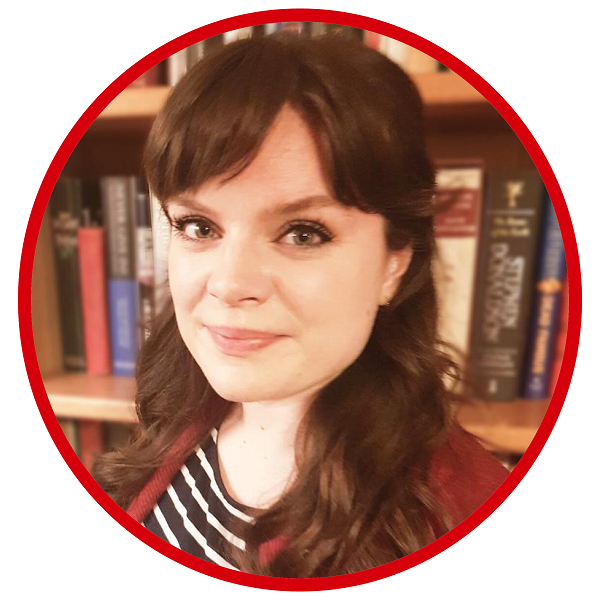
Queen's University Belfast
Organiser of ECR Day
Dr Alison Garden is a Senior Lecturer and UKRI Future Leaders Fellow at Queen’s Queen’s University Belfast, where she leads the interdisciplinary project, ‘Acts of Union: Mixed Marriage in Modern Ireland’.
Alison is the author of The Literary Afterlives of Roger Casement, 1899-2016 (Liverpool 2020) and is currently writing Love Across the Divide: desire and colonial culture in Northern Ireland, 1970-present.
Alison is an inaugural member of Young Academy Ireland, a Fellow of the Royal Historical Society and a Fellow of the Mitchell Institute for Global Peace, Security and Justice.
Connect with Alison on Twitter: @NotSecretGarden
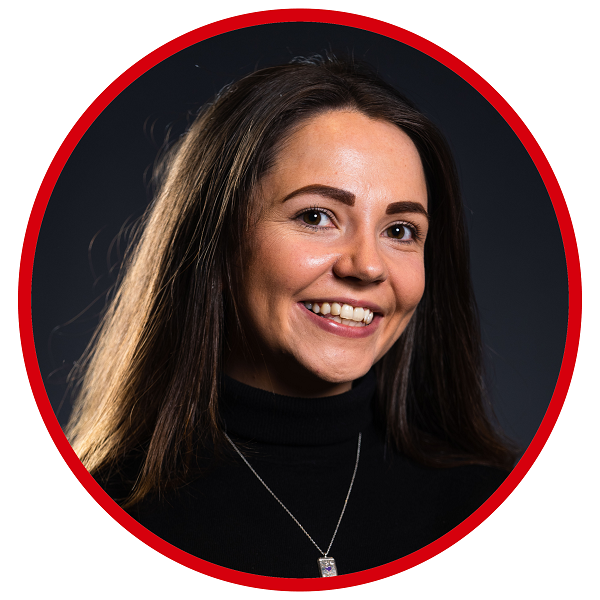
Queen's University Belfast
Chair of Panels 1, 2 and 3
Ciara McAllister is a PhD candidate in the School of Arts, English and Languages at Queen’s University Belfast. Her research, funded by the AHRC’s Northern Bridge Doctoral Training Partnership, examines representations of the working class in the theatre and novels of the Troubles, paying attention to the intersections of gender, class and ethnonationality.
Ciara's research to date has won the Margaret Cuthbert Fraser research award, the American Conference for Irish Studies postgraduate prize and was runner-up for the Irish Society for Theatre Research’s new scholars’ prize. Ciara’s broader research interests encompass working-class writing, community theatre, and representations of violence on stage, and she is currently engaged in research and activism surrounding gender and violence in NI theatre.
Connect with Ciara on Twitter: @ciaramca93
Panel 1
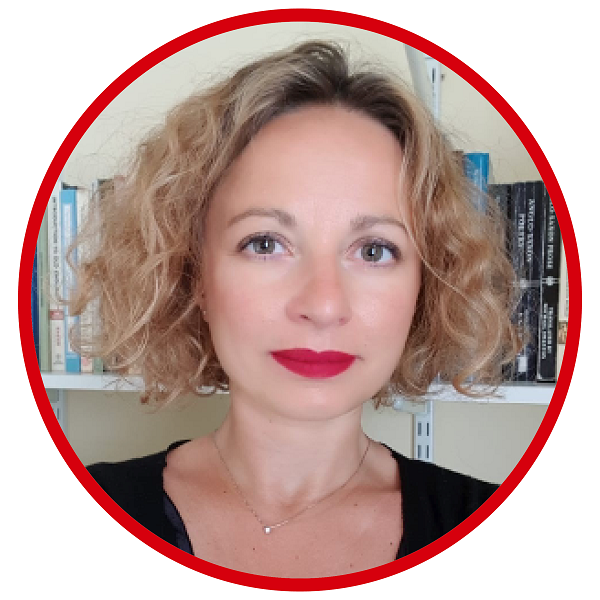
National Museums NI
Dr Sarah Baccianti is the Research Manager at National Museums NI. In her role she manages the implementation and development of National Museums NI’s Research Policy and Research Plan and reviews and monitors all research and academic partnerships.
Before moving to the museum/heritage sector, Sarah lectured in Old English and Old Norse literature at the University of Oxford, Université de Lausanne, University College Cork and Queen’s University Belfast.
Sarah obtained her doctorate at the University of Oxford where she researched the narrative structure of chronicles and historiae written in Old Norse, Old English, and Anglo-Latin. Her latest project – which was funded by the British Academy, and that she continues to research in her spare time – focuses on the reception and transmission of scientific and medical knowledge in medieval Denmark and Iceland.
You can find Sarah on Twitter: @SarahBaccianti
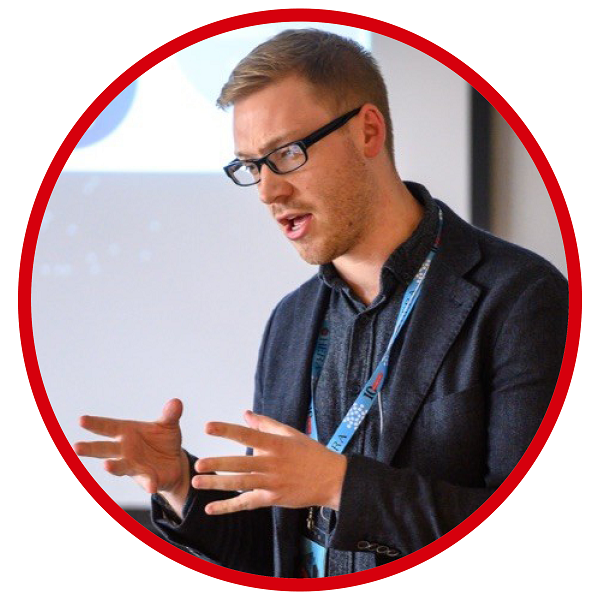
Dr Jamie Davies received his PhD from the Ironbridge International Centre for Heritage at the University of Birmingham, where he was also a Teaching Fellow.
Jamie joined the UK Arts and Humanities Research Council in 2018 as an International Stakeholder Engagement Portfolio Manager in the History, Cultures and Heritage Team before joining the International Partnerships and Engagement team in 2019, where he is now Senior International Partnerships and Engagement Manager-Europe.
Jamie was a Committee Member for National Heritage Lottery Fund Wales from 2016 to March 2023, and Honorary Head of Research for World Heritage UK from May 2017 to May 2019.
You can find Jamie on Twitter: @JDaviesHeritage

Department of Foreign Affairs (Ireland)
Dr Alison Meagher earned her PhD from the School of History, Anthropology, Politics and Philosophy at Queen’s University Belfast in 2017. Her research considers U.S. foreign policy towards Northern Ireland under President Jimmy Carter. Specifically, it focusses on the effectiveness of lobbying efforts by Irish-American political elites, in conjunction with John Hume and Irish officials in Washington, during the Carter presidency and beyond.
A former QUB Convocation Scholar and recipient of the Centre for Cross Border Studies’ Universities Ireland scholarship, Alison's work has been featured in such publications as Diplomatic History, and her doctoral thesis is in the process of being published as a book.
Alison is currently Permanent Representation of Ireland to the European Union, Department of Foreign Affairs.
You can find Alison on Twitter: @DrAlisonMeagher
Panel 2
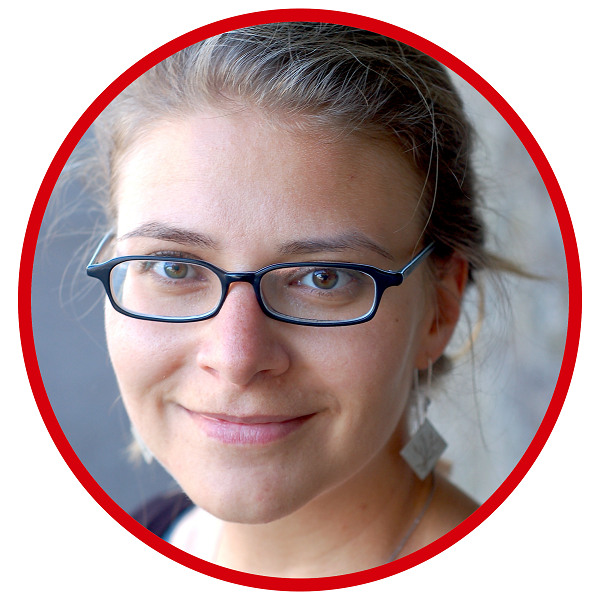
University of Edinburgh
Dr Anna Pilz is an Academic Developer at the Institute for Academic Development, University of Edinburgh. She designs and delivers cross-Faculty training to support postgraduate researchers and research staff in their professional development. On the basis of her unsuccessful and successful grant and fellowship applications, she has developed ‘A Comprehensive Guide to Fellowship Applications’.
Anna is passionate about best-practice sharing and, with an emphasis on researchers’ daily realities, she’s keen to develop initiatives that enhance community building. As a first-generation academic who has been on fixed-term contracts since completing her PhD in 2013, she’s interested in the impact of precarity on researchers’ lives, institutional values, and career narratives.
Active as an independent researcher, Anna investigates narratives of environmental change in cultural productions.
You can find Anna on Twitter: @anna_pilz
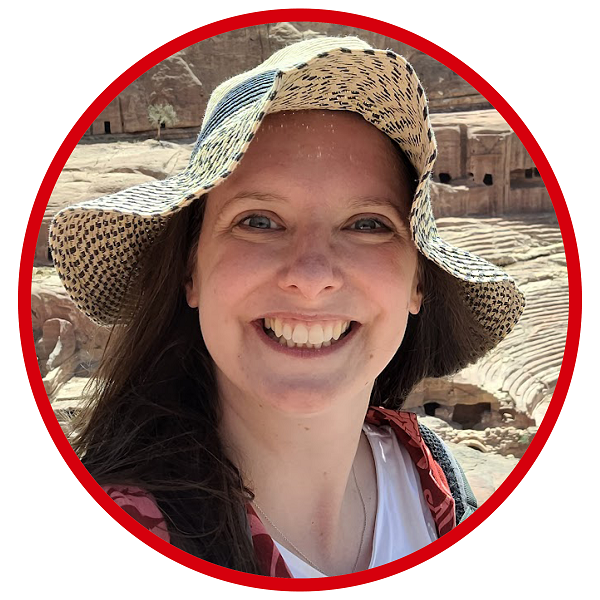
Queen's University Belfast
Dr Sophie Cooper is a Lecturer in Liberal Arts at Queen’s University Belfast where she has been based since 2021. Though based in the School of Arts, English and Languages, Sophie is a historian of Ireland and the Irish diaspora, particularly focusing on migration, gender, and the built environment.
Sophie's first book, Forging Identities in the Irish World: Melbourne and Chicago, c.1830-1922, was published by Edinburgh University Press in 2022 and was recently awarded the Lawrence McCaffrey Award for books on Irish America.
Sophie is currently obsessed with Belfast’s places of worship and ideas of identity and belonging, so can usually be found ‘collecting’ photos of churches like they’re some particularly niche Pokemon. For more on this project see @mappingbelfast on Instagram.
You can find Sophie on Twitter: @SophcoCooper
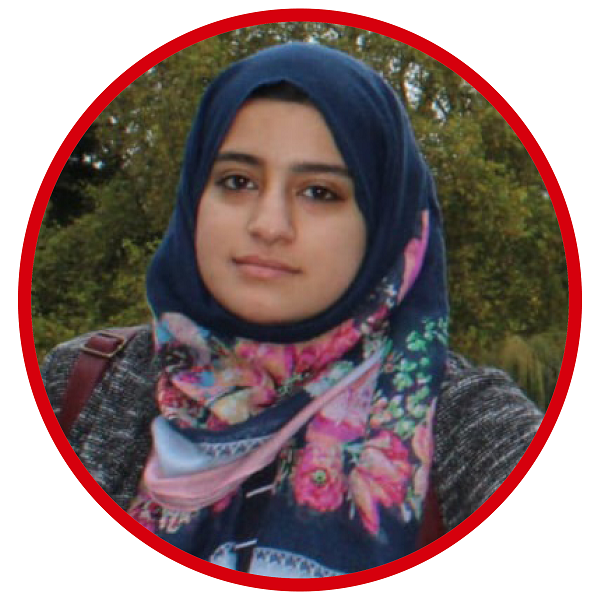
Trinity College Dublin
Dr Mobeen Hussain is an early-career historian of the British Empire. She is currently a postdoctoral research fellow on Trinity College Dublin’s Colonial Legacies project.
Mobeen is also working on her first monograph on race, colourism, and skin-lightening in colonial India. Her work has been published in numerous places including the Journal for South Asian Studies and online on The Conversation, Scroll, and History Workshop.
You can find Mobeen on Twitter: @amhuss27
Panel 3

University of Roehampton
Anouska Lester is a PhD Candidate and Visiting Lecturer at the University of Roehampton. She is due to submit her thesis, ‘Ephemeral Matters: The Materials and Documents of Early Modern Performance in England’, in 2023.
Anouska received her BA from the University of Oxford and her MA from University College London. During her studies she received diagnoses of depression, anxiety, and fibromyalgia (chronic pain and fatigue), and so she has firsthand experience navigating the complexities of pursuing a career in academia while living with disabilities.
Anouska's research draws on voluntary and professional experience with arts and heritage organisations such as the V&A Museum, Shakespeare Birthplace Trust, Shakespeare’s Globe, National Theatre, and London Academy of Music and Dramatic Art. She is the co-founder, with Sierra Carter, of the Revels Office, a virtual network for early modern postgraduate and early career researchers.
You can find Anouska on Twitter: @MrSoupSpoon

University of St Andrews / Scottish Graduate School for Arts & Humanities
Dr Anindya Raychaudhuri (he/him) is Senior Lecturer in English at the University of St Andrews, and EDI Lead at the Scottish Graduate School of Arts & Humanities.
Anindya is the author of two monographs, Homemaking: Radical Nostalgia and the Construction of a South Asian Diaspora and Narrating South Asian Partition: Oral History, Literature, Cinema. In 2016, Anindya was named one of the BBC/AHRC New Generation Thinkers.
Anindya is currently working on a cultural history of vertigo. He has also been involved in various EDI initiatives, including working on Athena Swan and Race Equality Charter applications, sitting on the Postgraduate Widening Participation Working Group at the University of St Andrews and serving as Equalities Officer for the St Andrews branch of the University & College Union.
You can find Anindya on Twitter: @DrAnindyaR
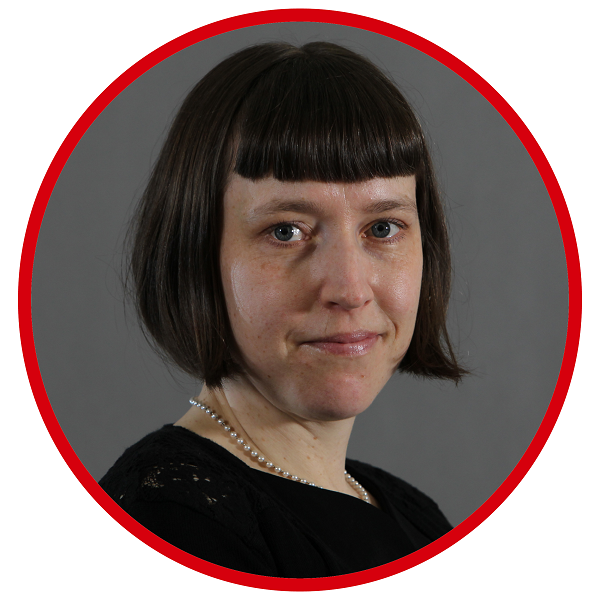
University of Edinburgh
Dr Lena Wånggren is a researcher and teacher at the University of Edinburgh. She works on nineteenth-century literature; literature and science/medicine; gender, intersectionality and social justice; with publications including Corporeality and Culture: Bodies in Movement (2015) and Gender, Technology and the New Woman (2017).
Lena is a trade union representative with many years of experience working on equalities and anti-casualisation, most recently serving as President of UCU Scotland.
Panel 4
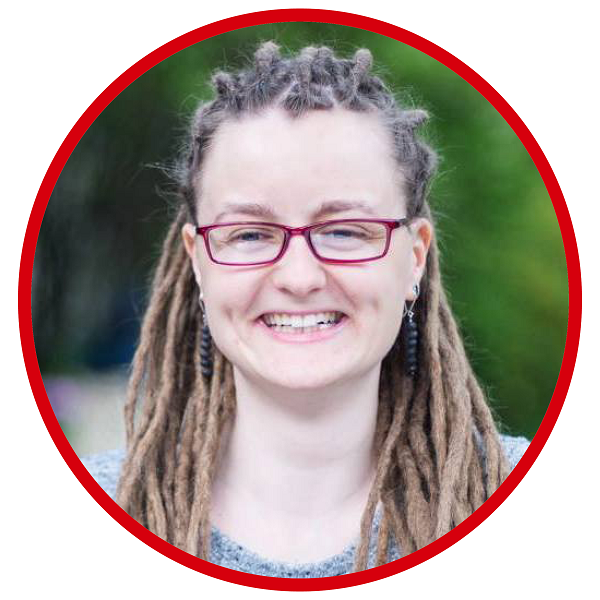
Arts and Humanities Research Council (UK)
Aga Siewicz is a Senior Investment Manager at the Arts and Humanities Research Council (AHRC). Working within the AHRC’s Skills team, her current role focuses on AHRC’s Centres for Doctoral Training as well as developing cross-portfolio initiatives to strengthen skills and talent in the arts and humanities in the UK, including grant schemes for early career researchers.
Prior to joining AHRC in 2019, Aga had a career in the heritage sector. She holds a master’s degree in comparative studies of civilisations from the Jagiellonian University in Krakow.
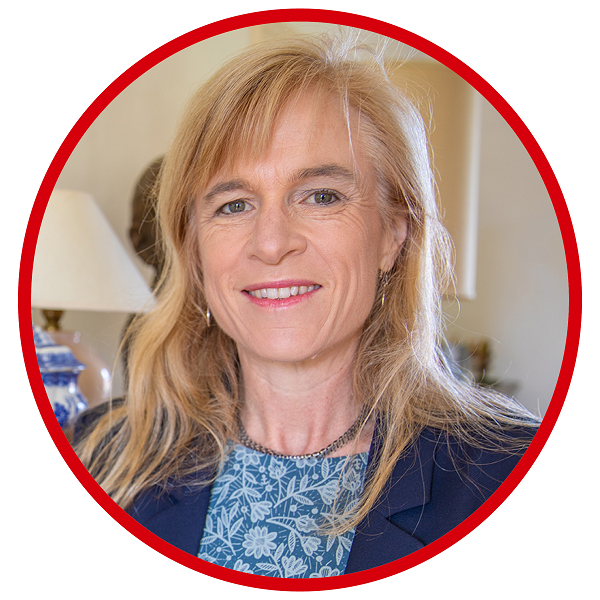
Director of the Leverhulme Trust
Professor Anna Vignoles FBA CBE is Director of the Leverhulme Trust: one of the largest, all-subject providers of research funding in the UK. She took up her new post in January, 2021. She was previously a Professor of Education at the Faculty of Education, University of Cambridge and a Fellow of Jesus College, Cambridge.
Professor Vignoles’ research has focused on issues of equity and value in education – in particular the relationship between educational achievement and social mobility and the role played by education and skills attainment in the economy and society.
She has advised numerous government departments, including the Department for Education, the Department of Business, Innovation and Skills, and HM Treasury. She has also acted as a Trustee of the Nuffield Foundation, Member of Council of the Economic and Social Research Council, and Member of the Advisory Board of the Sutton Trust.
Professor Vignoles was elected a Fellow of the British Academy in 2017 and awarded a CBE in 2019 for services to social sciences. You can find her on Twitter: @AnnaVignoles

Queen's University Belfast
Peter Stephenson is Research Development Manager for Arts, Humanities and Social Sciences at Queen’s University Belfast. Peter has worked at Queen’s since 2013 supporting researchers across AHSS disciplines to identify and apply for research funding to support their work.
Prior to joining Queen’s, Peter worked for the Economic and Social Research Council (ESRC) where he managed several funding programmes and grant schemes.
Peter studied Politics and International Relations at The University of Plymouth as well as Mechanical Engineering at the Institute of Technology, Sligo.
Panel 5: Engaged Research Masterclass
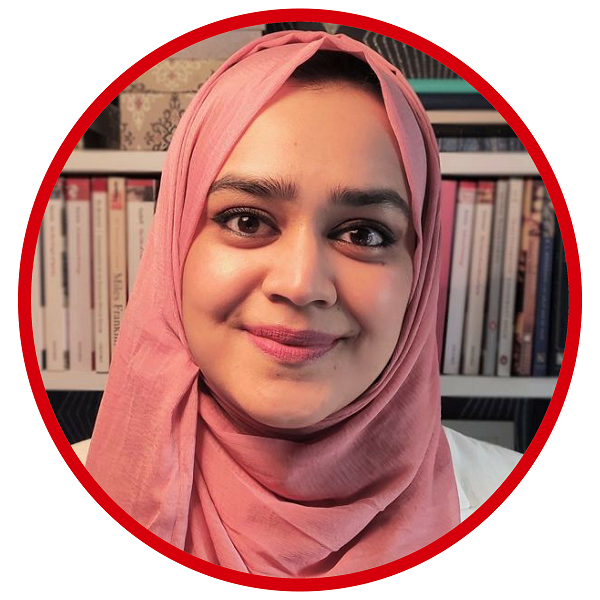
University of Birmingham
Dr Fariha Shaikh is Associate Professor of Victorian Literature at University of Birmingham. Her research interests are in the nineteenth-century, empire and and its legacies. Her monograph, Nineteenth-Century Settler Emigration in British Literature and Art was published by Edinburgh University Press in 2018.
Her monograph, Nineteenth-Century Settler Emigration in British Literature and Art was published by Edinburgh University Press in 2018. Fariha has appeared on BBC 1, BBC 2, Channel 4, BBC Radio 3, and in podcasts and festivals, talking both about her own research and on the nineteenth-century more broadly. She is an AHRC/BBC Radio 3 New Generation Thinker 2021.
You can find Fariha on Twitter: @DrFarihaShaikh
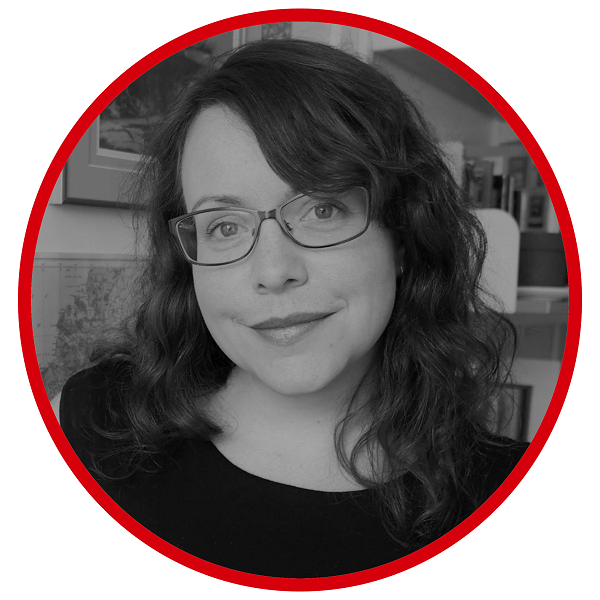
Birkbeck, University of London
Professor Julia Laite is Professor of Modern History at Birkbeck, University of London. She researches and teaches on the history of women, crime, sexuality and migration in the nineteenth and twentieth century British world.
Professor Laite's critically acclaimed book, The Disappearance of Lydia Harvey (Profile, 2021) won the Crime Writer’s Association Gold Dagger for Non-Fiction and the Bert Roth Award for Labour History.
Professor Laite is now beginning a project about her own family history and the troubled history of settler colonialism in Newfoundland.
You can find Julia on Twitter: @JuliaLaite
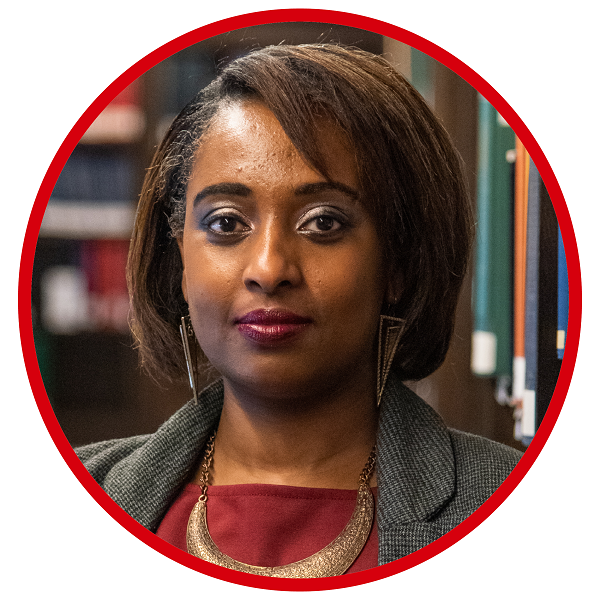
Swansea University
Dr Mai Musié is an ancient historian and a public engagement professional. She has been a key voice in the UK for engagement with the humanities for over a decade. Her research focuses on race and ethnicity in the ancient world. She is passionate about exploring the interconnectivity between the ancient Mediterranean world and North-East Africa. As a public-facing historian Mai has appeared on podcasts, TV, and radio discussing topics such as decolonisation, anti-racism, repatriation, and stories of ancient and modern migration. As a public engagement professional Mai has worked on history and heritage projects that foster co-curation, co-production, and building equitable relationships between communities and researchers.
Mai is a trustee of Classics for All - a national campaign to get classical languages and the study of classical civilisations back into state schools. She is also a trustee of The Roman Society, which aims to advance the understanding of ancient Rome and the Roman Empire. Mai is the co-founder of the Classics in Communities partnership project between the Universities of Oxford and Cambridge, and The Iris Project (an educational Classics charity). The project aims to promote and encourage the teaching of Latin and Ancient Greek at primary and early secondary school level (and beyond) in UK state schools. Mai is the co-editor (with Dr Arlene Holmes-Henderson and Steve Hunt) of the book Forward with Classics: Classical Languages in Schools and Communities, which investigates the motivations of teachers and learners behind the rise of Classics in the classroom and in communities. It also explores the ways in which knowledge of classical languages is considered valuable for diverse learners in the 21st century.
Furthermore, Mai is a board member of Ways of Working (a social enterprise), and Archive for Performances of Greek and Roman Drama (APGRD) at the University of Oxford. In addition, she is an external advisor for the Faculty of Classics EDI Committee at Oxford, and a member of NCCPE’s Inclusion Advisory Group for Race Equality. Mai was awarded the Classical Association Prize for Outreach in 2019; the prestigious Classical Association Prize aims to recognise outstanding contributions to the promotion of Classics in the UK and is awarded annually to the person, group, or project whose work is felt to have raised the profile of Classics in the public eye. You can find her on Twitter: @Dr_MaiMusie
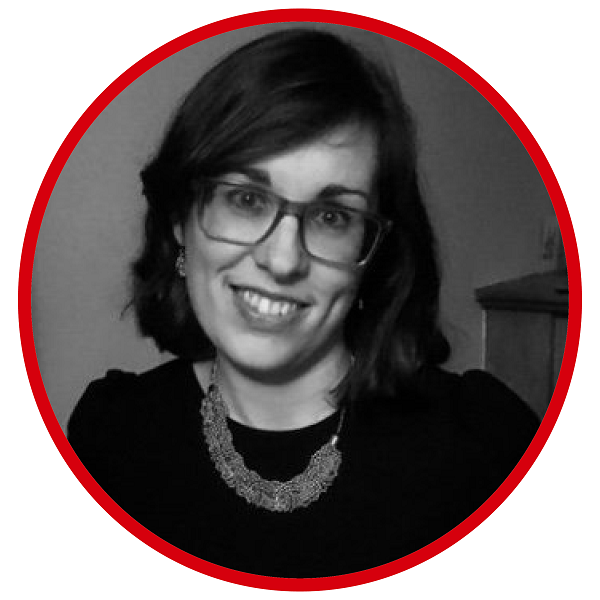
Queen's University Belfast
Dr Síobhra Aiken is a Lecturer in Irish at Queen’s University Belfast.
Síobhra's first monograph, Spiritual Wounds: Trauma, Testimony and the Irish Civil War, was published in April 2022 by Irish Academic Press. The book featured in the Times Literary Supplement's books of 2022 and was nominated for the 2023 Whitfield Book Prize (Royal Historical Society). Spiritual Wounds was also awarded the Michael J. Durkan Prize for Books in Language and Culture 2022 by the American Conference of Irish Studies (ACIS).
Síobhra has also contributed to a variety of television documentaries and radio programmes.
You can find Síobhra on Twitter: @siobhra
